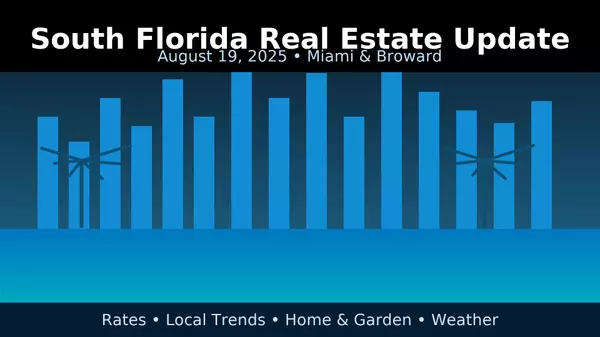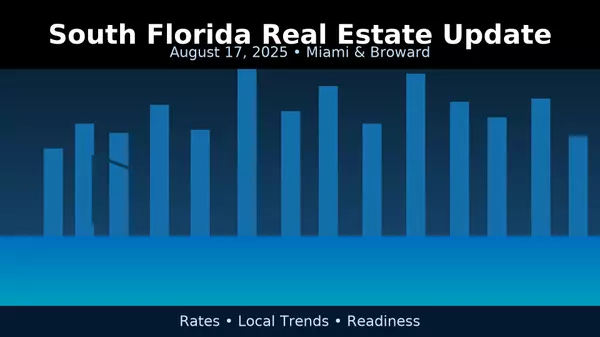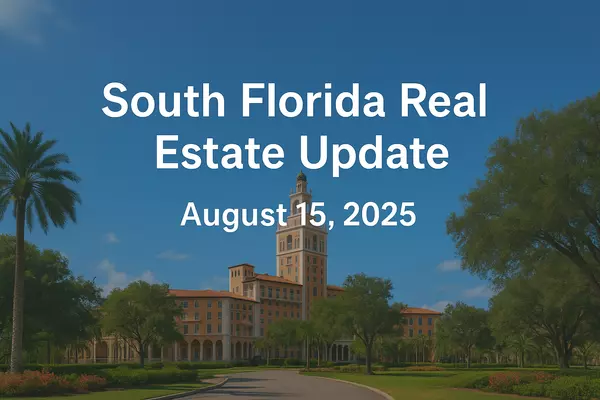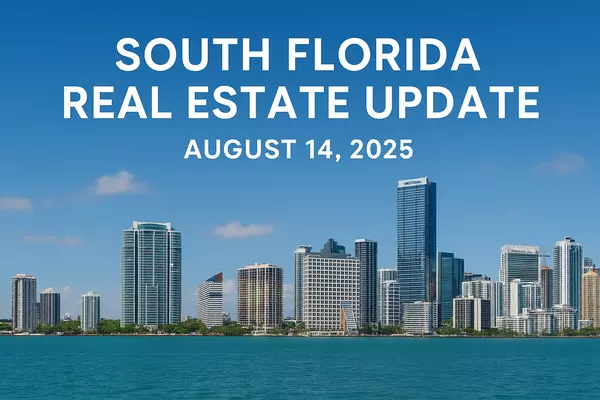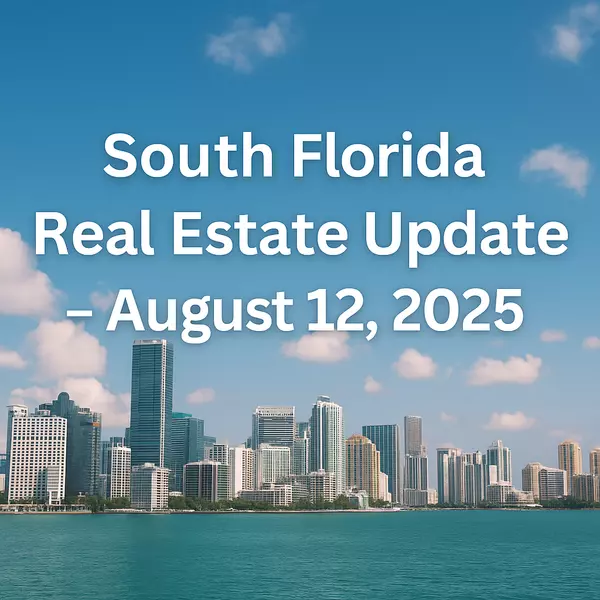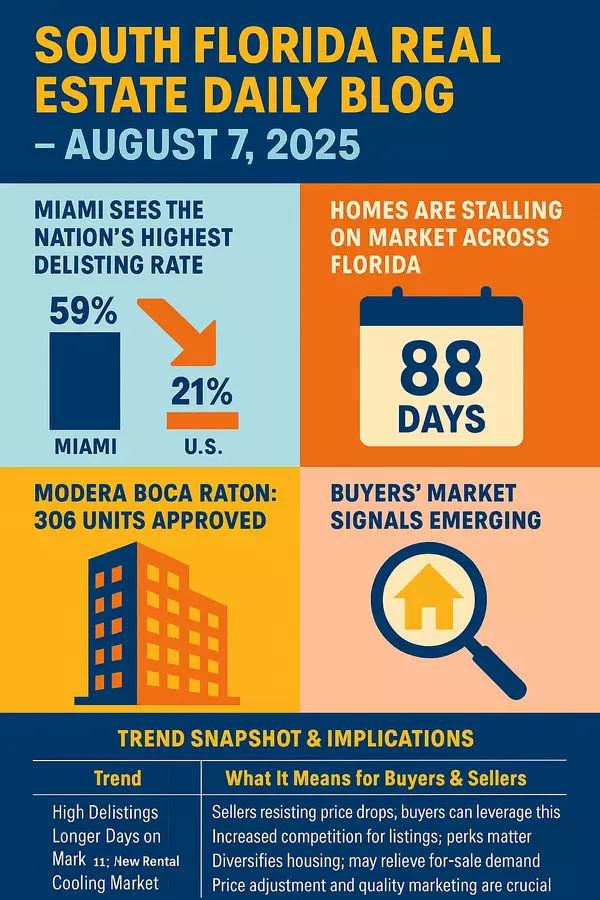Thinking About Buying a Home in Miami? Here's What to Expect and What to Look Out For

Thinking About Buying a Home in Miami? Here's What to Expect and What to Look Out For
Purchasing a home is one of the most significant financial decisions you’ll make in your lifetime. Whether you’re a first-time buyer or an experienced homeowner, the process can seem daunting—especially in a competitive and dynamic market like Miami. From securing financing to submitting an offer and navigating inspections, every step is crucial to ensuring a successful and smooth transaction.
Here’s an in-depth guide on what to expect when buying a home in Miami, along with key things to consider so you can be well-prepared for the process.
1. Get Pre-Approved for a Mortgage: The Essential First Step
Before you even begin looking at homes, the very first step in the process is getting pre-approved for a mortgage. Many buyers often overlook this step, but it’s critical. Without pre-approval, you won’t have a clear understanding of how much the bank will lend you, how much you’ll need to pay out-of-pocket, and what loan terms you’ll qualify for.
Why is Pre-Approval So Important?
- Know Your Budget: Pre-approval provides clarity on your financial limits. It gives you a clear understanding of how much you can afford to spend on a home. This way, you won’t waste time looking at homes that are out of your budget.
- Unlock Down Payment Assistance Programs: If you’re a first-time buyer, you may be eligible for down payment assistance programs or other financial incentives. Your lender can help identify these programs based on your financial profile, making homeownership more affordable.
- Competitive Edge: In a hot market like Miami, properties can go under contract in a matter of days. Pre-approval puts you in a strong position when making an offer. Sellers prefer buyers who have already secured financing, as it reduces the risk of the deal falling through.
- Required for Submitting Offers: When it comes time to submit an offer, we must include the terms of your financing in the contract. Additionally, most sellers will require a pre-approval letter to be attached to your offer as proof that you have the funds and ability to buy the home. Without it, your offer may not be considered.
What You'll Need for Pre-Approval:
Getting pre-approved can take several days and requires gathering essential documents such as:
- Recent pay stubs
- Tax returns for the past two years
- Bank statements
- A list of your debts (student loans, credit card debt, car payments, etc.)
Once you provide this documentation to your lender, it will take a few more days to process your pre-approval. Getting this step out of the way early ensures that when you find the home you want, you can act fast without missing any opportunities.
2. Submitting an Offer and the Inspection Period
Once you're pre-approved and have found a home you love, the next step is submitting an offer. If your offer is accepted, you’ll officially enter into the inspection period—a crucial phase in the home-buying process.
What Happens During the Inspection Period?
The inspection period typically lasts anywhere from 5 to 15 days, during which time you have the opportunity to have the property thoroughly inspected. This is one of the most important steps in the buying process, as it helps you identify any potential issues with the property before finalizing the purchase.
You’ll hire a professional home inspector to conduct a comprehensive inspection of the property, checking for:
- Structural integrity
- Electrical systems
- Plumbing
- Roofing
- Heating and cooling systems
- Potential pest infestations or mold
Key Considerations About Inspections:
- Out-of-Pocket Costs: As the buyer, you are responsible for paying for the home inspection, which typically costs between a few hundred to a thousand dollars, depending on the size and complexity of the property.
- Negotiating After Inspection: Once the inspection is complete, you’ll have the option to negotiate with the seller based on the findings. If major issues are uncovered, you can:
- Request repairs: Ask the seller to fix certain issues before closing.
- Ask for a credit: Request that the seller provide a credit at closing to cover the cost of repairs.
- Accept the property as-is: If the issues are minor, you may decide to proceed without requesting any changes.
- Back out of the deal: If the inspection uncovers significant issues that you’re not comfortable with, you have the right to back out of the contract and get your earnest money deposit back during the inspection period.
3. The Earnest Money Deposit (Escrow)
When your offer is accepted, you’ll be required to place an earnest money deposit (also known as escrow) within three days of the contract being signed. This deposit is a show of good faith that you’re serious about purchasing the home.
Key Details About Earnest Money:
- The earnest money deposit is typically 1% to 3% of the home’s purchase price.
- The money will be held in an escrow account and applied toward your down payment and closing costs when the transaction closes.
- If you back out of the contract during the inspection period, you can get your earnest money deposit back. However, once the inspection period ends, if you back out without a valid reason, you may forfeit your deposit.
4. Title Search and Appraisal
Once the inspection is complete, and both parties agree on any repairs or credits, the next step is to conduct a title search and appraisal.
-
Title Search: A title company will perform a title search to ensure that the property has a clear title. This means verifying that there are no liens, unpaid taxes, or legal disputes attached to the property. A clean title ensures that you will have full ownership of the home without any lingering issues.
-
Appraisal: Your lender will require an appraisal to determine the market value of the home. The appraisal value is important because the bank will only lend you up to the value of the property. If the appraisal comes in lower than the agreed-upon price, you may need to negotiate with the seller or pay the difference out of pocket.
Both the title search and the appraisal are critical steps in ensuring that the property is a sound investment and that there are no legal or financial barriers to completing the transaction.
5. Finalizing Your Loan and Financing Contingencies
Most offers include a financing contingency, which allows you to back out of the deal if you cannot secure financing. Typically, the financing contingency is 30 days, during which your lender will work to finalize your mortgage loan.
During this time, your lender will review all the documentation you’ve provided and may ask for additional information or clarification. It’s crucial that you remain in close contact with your lender during this period to ensure a smooth process.
Important Tips for Final Loan Approval:
- Keep Your Finances Stable: Avoid making any major financial changes during this time, such as switching jobs, taking on new debt, or making large purchases. These actions could jeopardize your loan approval.
- Meet All Deadlines: Make sure to meet any deadlines specified in the contract, especially those related to financing and inspections.
6. Closing the Deal
Assuming all goes well with the inspection, appraisal, and title search, the final step is closing. Most closings happen within 30 to 45 days after the offer is accepted.
What Happens at Closing?
- You’ll sign the final paperwork, including the mortgage agreement, and pay your closing costs.
- Closing costs typically range from 2% to 5% of the purchase price and include lender fees, title insurance, and prepaid property taxes.
- Once all documents are signed and funds are transferred, you’ll receive the keys to your new home!
Conclusion
Buying a home is a complex process, but with the right preparation and guidance, it can be a smooth and rewarding experience. The first step is getting pre-approved for a mortgage, which sets the foundation for your home search. From there, you’ll need to navigate the offer process, inspections, and financing. By understanding each of these steps, you can avoid common pitfalls and ensure that your home-buying experience is a success.
If you’re ready to begin your journey toward homeownership, contact me, William Gartin, with eXp Realty, at 305-842-6097. I’ll guide you through every step of the process, ensuring that you find the perfect home in Miami’s competitive real estate market. Let’s make your dream of owning a home a reality!
Categories
Recent Posts
